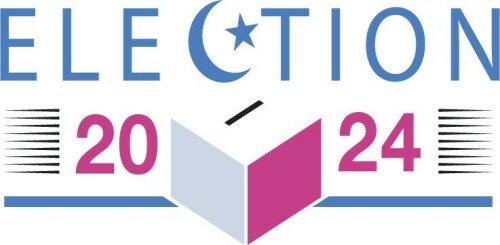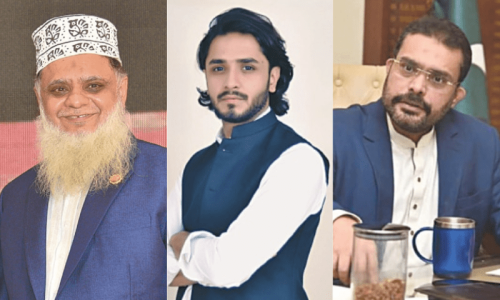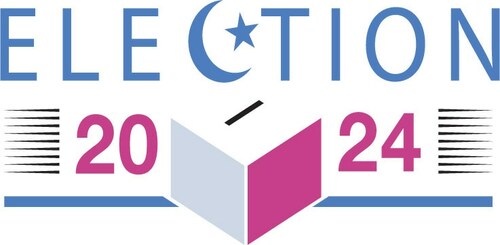Tens of millions of Pakistani voters will cast their ballots in the 12th parliamentary elections since 1970 on Thursday in a grand test not just for the country’s frail democracy but also for its flagging economy.
Billed to be the most contentious elections in the nation’s history, the entire exercise is scarred by the establishment’s efforts to decimate one of the largest political parties, with the rivals standing on the sidelines and watching their path to power being cleared for them.
The controversies surrounding the electoral exercise notwithstanding, the new polls are widely expected to produce a weaker coalition setup with a doubtful mandate to manage a spiralling economic crisis that has seen the price inflation soar to record highs as food, fuel, and medicine costs spike, foreign exchange reserves shrink and the rupee drop to a record low in the last two years.
Last summer, the country had barely avoided a default on its international payments thanks to a nine-month $3 billion bailout package from the International Monetary Fund (IMF), which will end in mid-April. A Topline Security report recently noted that… “a coalition government with the support of smaller parties will remain fragile and may struggle to implement the much-needed economic reforms.”
There seems to be little understanding of the grave economic challenges the country faces and the tough decisions need to lead the country for the next five years
At a time when the economic outlook is becoming more uncertain due to rising terrorist attacks and tensions with Afghanistan and Iran, the next setup will have its work cut out for itself. The government’s immediate task will be to strike a new, larger and longer deal with the IMF, which is crucial to the country’s outlook.
Obtaining new IMF funding is critical not only to revive the flagging economy and avoid a default but also to secure financing from the other creditors, as the nation’s external financing requirements are estimated to average around $27bn over the next several years. The brokerage company’s report says the key area to watch would be how the new government deals with the IMF.
IMF Managing Director Kristalina Georgieva has recently remarked that she expects the new government in Pakistan to take seriously solving its very deep structural problems and help the cash-strapped country to reach its potential. She made these remarks days after the IMF, in its World Economic Outlook, lowered Pakistan’s economic growth forecast to two per cent for the current fiscal year, down 0.5 percentage points from its previous estimates of 2.5pc.
“(The caretaker government) has done a good job of moving in the right direction. But of course, the problems of Pakistan are not solved. So more needs to happen,” she argued. “We would like to see a government that is willing to do what is necessary for Pakistan to reach its potential.”
Sadly, though, the manifestos released recently by the three major contenders for power — PML-N, PTI and PPP — reflect little understanding and comprehension of the grave economic challenges by their leaders, who are aspiring to lead the country for the next five years. All three documents are heavy on rhetoric but light on concrete plans and strategies to achieve the goals set in the manifestos.
On top of that, these parties have opted to make populist announcements rather than explain the gravity of the economic crisis to their voters and prepare them for tough decisions they will have to make to fix it.
For example, the PML-N, whose leadership takes credit for ‘development’ and building a vast network of motorways and roads, has pledged 10 million jobs, enhanced public wages to match inflation and reduced electricity bills. The PPP has promised to double salaries, provide free electricity up to 300 units, give jobs to the youth and provide subsidies to alleviate the burden of inflation.
The PML-N also promises to boost Pakistan’s exports to $60bn in five years, enhance workers’ remittances to $40bn, achieve 6pc GDP growth rate in three years, and ensure speedy development.
Likewise, it plans to bring down inflation to single digits in the medium term and reduce fiscal deficit to 3.5pc of GDP. But the party, which hopes to lead the new setup, does not explain ‘how’ it intends to achieve these targets or turn around the economy.
The economic plan presented by the PTI in its election programme is much more elaborate than the one given by the Noon League, but it also lacks a concrete future strategy.
For example, both parties talk about raising tax revenues to boost the tax-to-GDP ratio and reduce the fiscal deficit, but neither says a word about taxing the retailers, real estate and big farmers. Both speak about increasing exports, but none has laid out a strategy to enhance industrial and agricultural productivity to produce an export surplus.
The PTI has also focused more on its ‘achievements’ during its truncated tenure rather than what strategies it plans to pursue in the future.
No matter how difficult it is for many of us to swallow this, caretaker Prime Minister Anwaarul Haq Kakar’s remarks that “no political party has presented a plan in their manifesto to fix the economy or come up with an agenda to fix the chronic economic issues” are spot on.
“The claims being made by the parties in their campaigns regarding jobs, shelters, cheap electricity, food security and others are contingent upon a stable economy,” he has rightly noted.
Many think that the feeling that the voters don’t read election manifestos keeps the political parties from clearly laying out their economic policy and strategies to implement it to achieve the targets. Or, perhaps these parties and their leaders have become so used to managing the economy on a day-to-day basis that they do not feel the need to spell out a medium to long-term economic strategy.
Published in Dawn, The Business and Finance Weekly, February 5th, 2024














































Dear visitor, the comments section is undergoing an overhaul and will return soon.